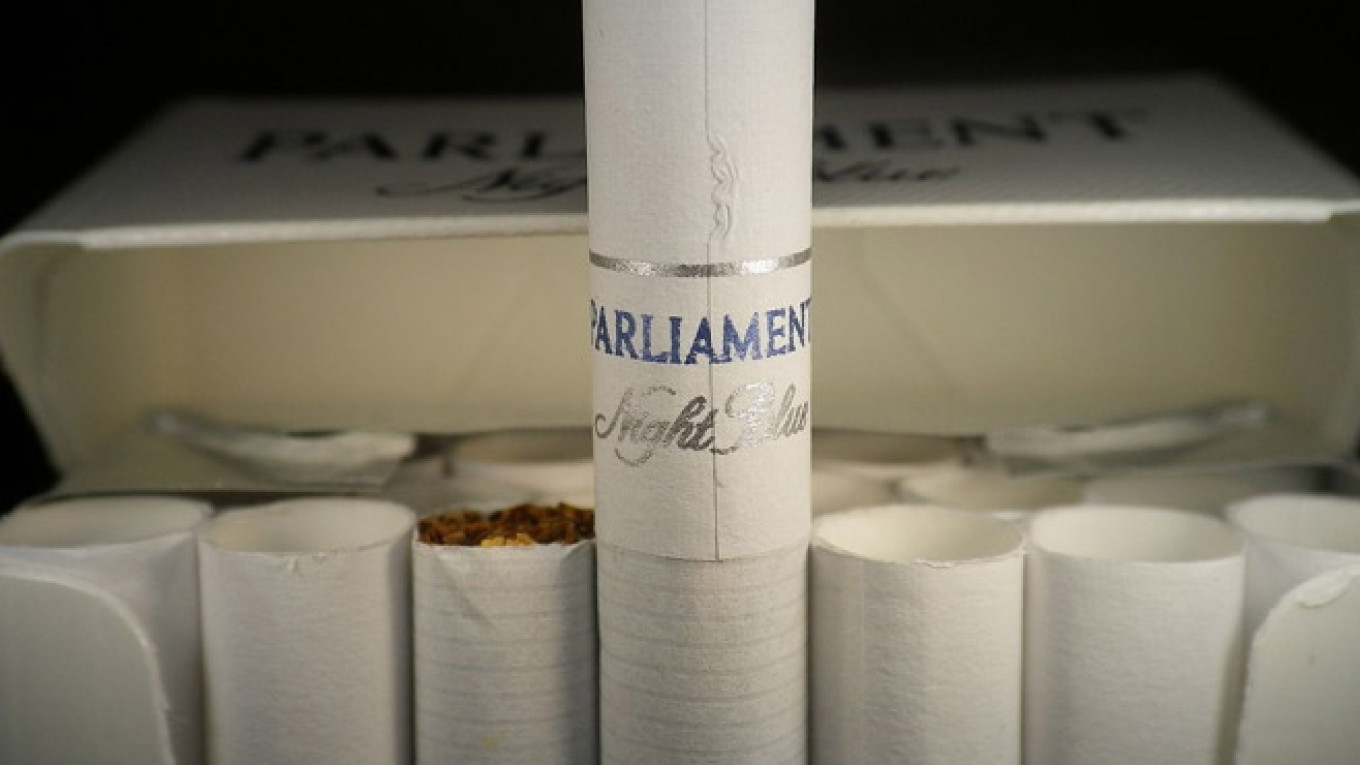The ban on smoking in cafes and restaurants has been in force in Russia for several weeks now.
There are several reasons for the current anti-smoking ban. The first is the problem of "passive smoking" — a situation where nonsmokers are forced to inhale tobacco smoke, with all its harmful toxins, merely because they are close to someone smoking. A law was obviously needed to protect everyone's right to clean air.
However, passive smoking is not the real problem in Russia. After powerful air conditioners and ventilation systems were created, the division of public spaces into smoking and nonsmoking areas effectively eliminated ambient secondhand smoke.
The problem is that smoking is a health hazard to the smoker himself: numerous scientific studies have shown that smoking significantly increases the risk of cancer and shortens life expectancy. And in Russia, a country with a growing number of smokers and an already low life expectancy, smoking poses a particularly serious threat.
In addition to restricting tobacco's use, the government has also been trying to make smoking less attractive, and for some time has placed ghastly images of the effects of smoking on cigarette packs. The authorities argue that the money spent on battling addictive behaviors is justified when considering that it ultimately saves taxpayers money otherwise spent on medical care.
Of course, if the goal is to make smoking less attractive, the government could simply and profitably impose higher taxes on cigarettes, thereby creating almost the same negative incentives as the current smoking ban. But it is much easier to enforce a ban than to collect high taxes.
Still, even considering the ease with which the ban is enforced, it is not yet clear how long the results of any of these efforts will last. Tobacco companies are legendary for their powerful lobbying efforts and their use of public initiatives and even scientific organizations to advance their agendas. College textbooks on management even cite tobacco companies for their organizational prowess.
The more excessive measures such as eliminating rooms for smokers in airports actually play into the hands of those who advocate lifting the ban. After all, it is far more difficult to avoid a long stay in the airport than in a cafe or restaurant. In general, it is unclear how the authorities can justify making life so much worse for smokers.
The ban, according to some reports, also hurts business at cafes and restaurants, as smokers seek out alternative venues. However, even if profits are down at the moment, those customers will probably return: some will use nicotine patches to satisfy their craving and others will simply wean themselves from the habit of smoking over a cup of coffee. But in any case, smokers will suffer the most — just as lawmakers intended.
Still, despite the unevenness of Russia's anti-smoking efforts, there are far more smokers among the younger generation than the older, and the pressure to lift the ban will increase significantly when today's youth become the country's main voters and consumers. Perhaps that is why it was necessary to act quickly now, before it was too late.
Konstantin Sonin, a columnist for Vedomosti, is professor of economics and vice rector at the Higher School of Economics in Moscow.
A Message from The Moscow Times:
Dear readers,
We are facing unprecedented challenges. Russia's Prosecutor General's Office has designated The Moscow Times as an "undesirable" organization, criminalizing our work and putting our staff at risk of prosecution. This follows our earlier unjust labeling as a "foreign agent."
These actions are direct attempts to silence independent journalism in Russia. The authorities claim our work "discredits the decisions of the Russian leadership." We see things differently: we strive to provide accurate, unbiased reporting on Russia.
We, the journalists of The Moscow Times, refuse to be silenced. But to continue our work, we need your help.
Your support, no matter how small, makes a world of difference. If you can, please support us monthly starting from just $2. It's quick to set up, and every contribution makes a significant impact.
By supporting The Moscow Times, you're defending open, independent journalism in the face of repression. Thank you for standing with us.
Remind me later.






